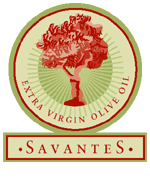Originally published in Spanish in Olimerca 2016
Flavour is the culinary difference between extra virgin olive oil and competing vegetable oils. Tasting is the primary method in describing the flavour and determining culinary use and whether the olive oil is defective. While chemical testing is progressing as a tool to determine flavour and defects – the skilled taster reigns.
Tasting is immediate, it describes the extra virgin olive oil as it is presented to the taster, whether for quality assessment or for a consumer who is selecting for use in cooking.
Every individual describes taste differently depending on their experience, their taste vocabulary and their ability to differentiate between the different elements of aroma and taste which make up the flavour. To even out the variations in taste descriptions between tasters, panels are trained. Panels that determine the classification of olive oils are accredited and have a pivotal role in determining the return to the producer and the authenticity to the consumer.
Panels are expensive to convene and take time to make determinations, time which often is not available to the buyer or blender who needs to make an immediate decision. Decisions on the quality and suitability of extra virgin olive oil are made daily all along the supply chain in the effort to deliver an authentic and attractive product to the consumer. This gives the individual taster the ultimate power in ensuring the integrity and value of extra virgin olive oil.
If the perception of the consumer is that the olive oil they are buying is defective or fraudulently presented, the tasters along the supply-chain must take responsibility. If they are well trained, knowledgeable and skilled they will have the confidence to reject sub-standard product. This decision on quality is too often deferred to the ‘quality assurance (QA)’ department and many defer responsibility in the pursuit of sales. In some cases this deference comes from a lack of knowledge and confidence, so QA departments would do well to assure the quality of the tasting skill of staff at all levels, as well as the quality of the product.
Why therefore is so little emphasis placed in some consuming countries on the training and rewarding of individual tasters at all levels in the industry. Every trader who handles olive oil; whether producer, importer, buyer, distributor or salesperson, should be a trained taster. Tasters should be ranked to encourage improvement and the highest ranked tasters coveted and financially rewarded.
Confidence in, and third-party recognition of, individual tasters will be the most powerful way to ensure the authenticity of extra virgin olive oil delivered to the consumer, and thereby increase sales. The skill of a taster could be assessed through technical taste tests and recognition of extra virgin olive oils from different varietals and regions. The score achieved in these standardised tests would lead to ranking and recognition on an international register.
Ranking and recognition will also go some way to rid the industry of those who claim to be ‘expert’ tasters and discredit products without foundation. Panels will still have their place in classification and be the ultimate determination of quality, well supported by individual tasters throughout the industry.
Simon Field
17 June 2016

